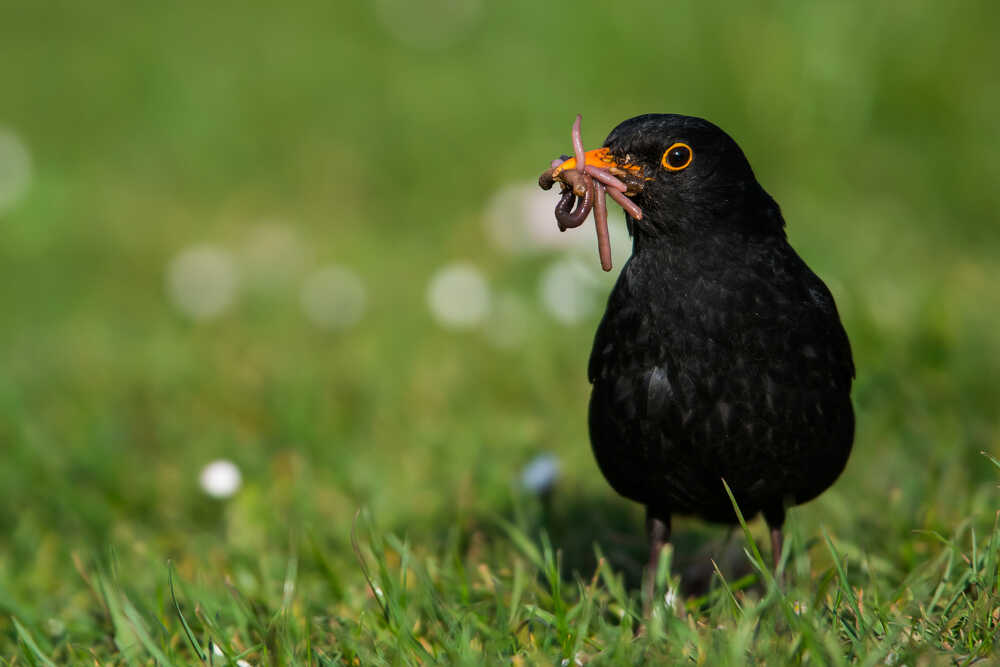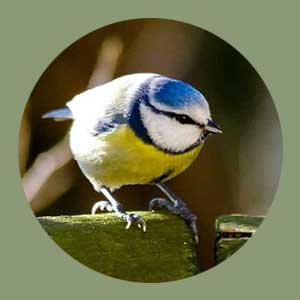If you’ve ever watched a blackbird in your garden or local park, you may have noticed that they have a distinctive way of moving along the ground – by hopping.
But have you ever wondered why blackbirds hop along the grass, rather than walking or running like other birds?
Table of Contents
Ground Foraging
Blackbirds are part of a group of birds known as “ground foragers”.
This means that they spend a lot of time on the ground, hunting for insects and other small creatures to eat.
Hopping along the grass allows them to move quickly and efficiently, while also being able to keep an eye out for potential prey.
But there’s another reason why blackbirds hop along the grass – it helps them to avoid predators.
By staying low to the ground and moving quickly, they’re less likely to be spotted by birds of prey or other predators.
Hopping also allows them to change direction quickly, which can be useful if they need to make a quick escape.

Hearing the Worms!
Interestingly, blackbirds aren’t the only birds that hop along the ground. Many other ground foragers, such as robins and thrushes, also move in this way.
However, blackbirds are particularly adept at hopping, and can cover large distances quickly and efficiently.
In addition to their unique hopping style, blackbirds are also known for their excellent hearing. Like many birds, they have a highly developed sense of hearing that allows them to detect even the slightest sounds.
This is especially important when hunting for insects, as they can use their hearing to locate their prey even if it’s hidden from view.
Blackbirds have the ability to hear and detect the movement of worms on the surface of the ground. When you see them stopping, head to one side and listening intently, they are listening out for that oh so quiet movement!
Sharp pecking beaks
When it comes to catching their prey, blackbirds use their sharp beaks to grab and hold onto their prey.
The beaks of a blackbird are uniquely designed for this purpose, with a sharp point at the end that can pierce through tough exoskeletons.
Once they’ve caught their prey, blackbirds use their beaks to crush and break it down into pieces that are easier to swallow.
Do Blackbirds simulate the rain?
One theory about Blackbird behaviour is that they hop along the ground to mimic the sound of rain.
When it rains, worms will emerge from underground to travel.
The ground being wet will make it easier for the worms to get around.
The hopping of the blackbird will sound a lot like raindrops are falling to the worms below. Many people believe that blackbirds also hop along the ground to mimic the way rain would fall onto the earth and encourage worms to the surface.
Final thoughts…
Overall, blackbirds are fascinating creatures that have evolved a unique set of adaptations to help them survive and thrive in their environments.
From their distinctive hopping style to their excellent hearing and sharp beaks, these birds are truly remarkable.
The next time you spot a blackbird hopping along the grass, take a moment to appreciate how amazing they are!
